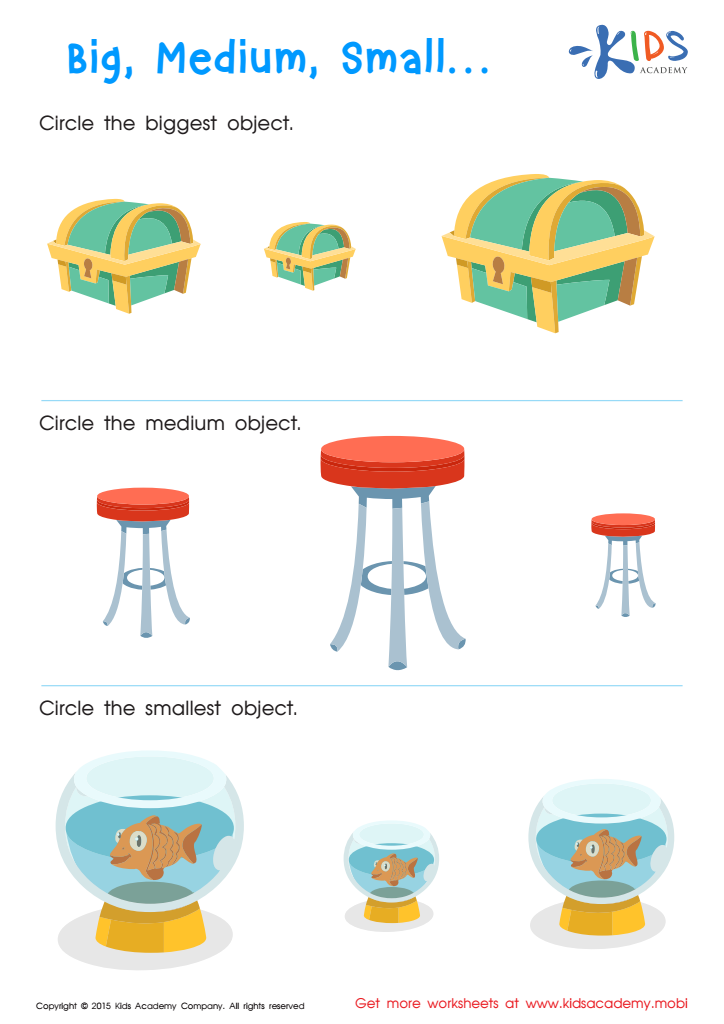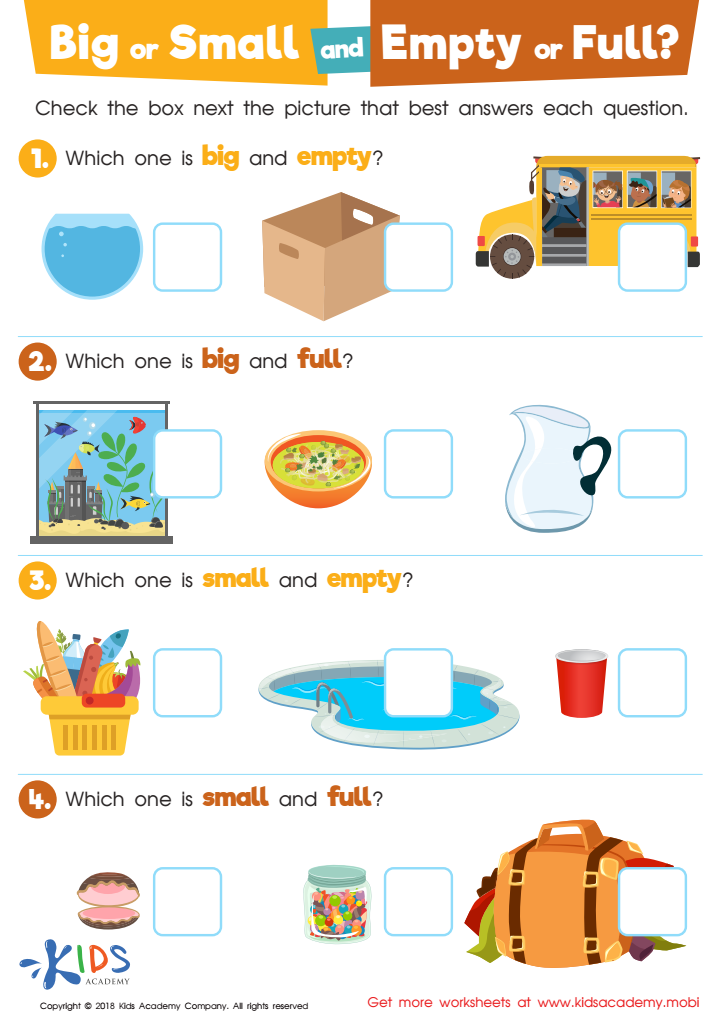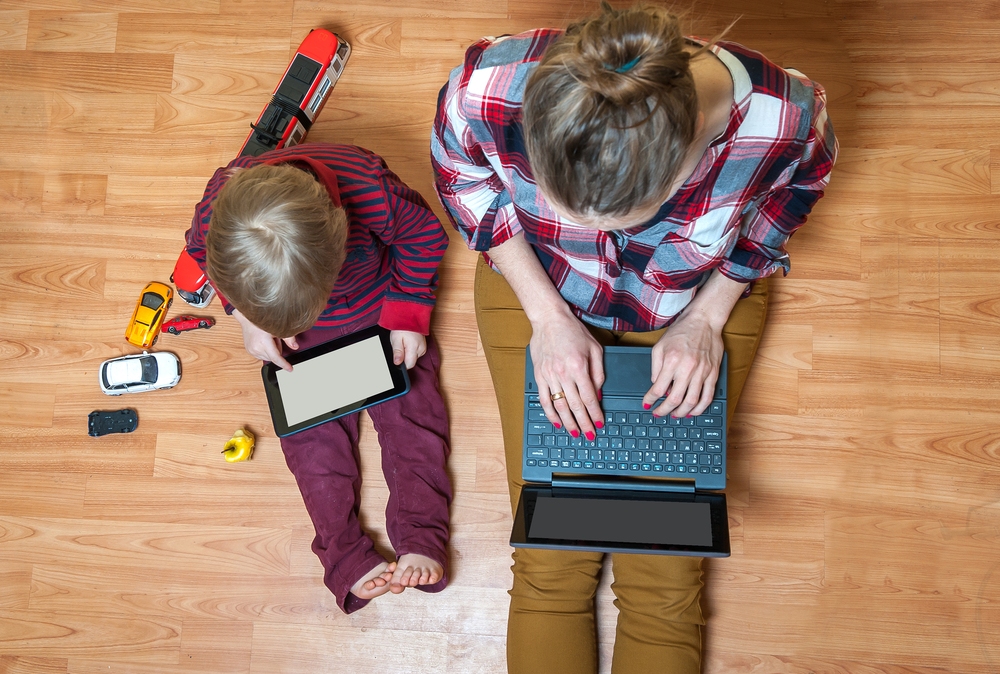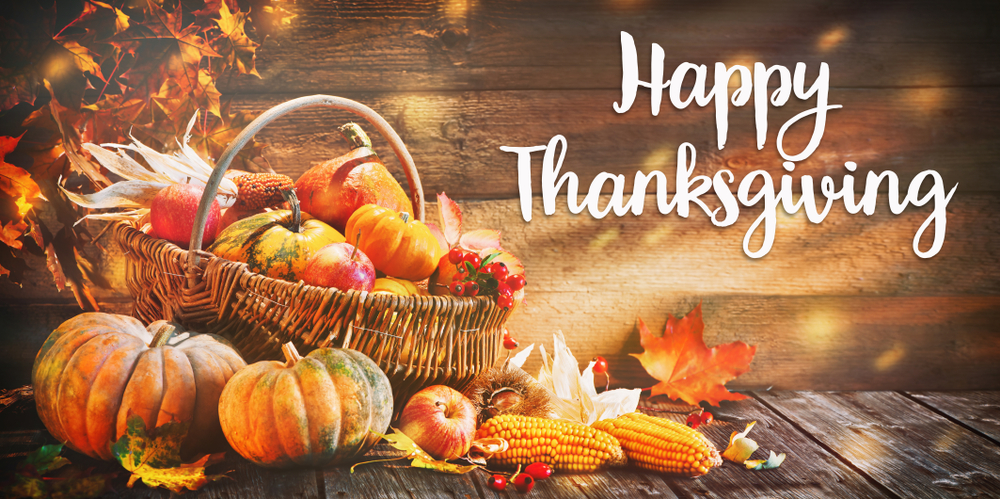Basic comparison skills Worksheets for Kids
2 filtered results
-
From - To


Big Medium Small Worksheet


Big or Small and Empty or Full? Worksheet
Question/Answer
What does the Basic comparison skill mean when it comes to Kindergarten Measurement learning?
The Basic comparison skill in Kindergarten Measurement learning refers to the ability of children to identify and articulate relationships between objects based on their physical attributes. This includes understanding concepts like bigger/smaller, taller/shorter, and heavier/lighter, allowing them to compare and contrast objects based on size, height, weight, and other measurable qualities in a simple, direct manner.
How does the mastery of the Basic comparison skill affect a student's performance at an early age?
Mastery of the Basic comparison skill at an early age significantly boosts a student's cognitive development, enhancing their ability to analyze, reason, and solve problems. It fosters critical thinking and lays a strong foundation for academic success in mathematics, science, and reading comprehension. Early mastery also boosts confidence and promotes a positive attitude towards learning and exploration.
How to train the Basic comparison skill in Kindergarten students learning about Measurement?
To train Basic Comparison skills in Kindergarten students, focus on hands-on, interactive activities. Use real-life objects to compare sizes, lengths, and weights, encouraging students to use terms like "bigger," "smaller," "heavier," and "lighter." Incorporate games that involve sorting and ordering objects by size or weight. Simple, guided experiments where students predict and then check their hypotheses can be very effective.
 Assign to the classroom
Assign to the classroom

.jpg)










